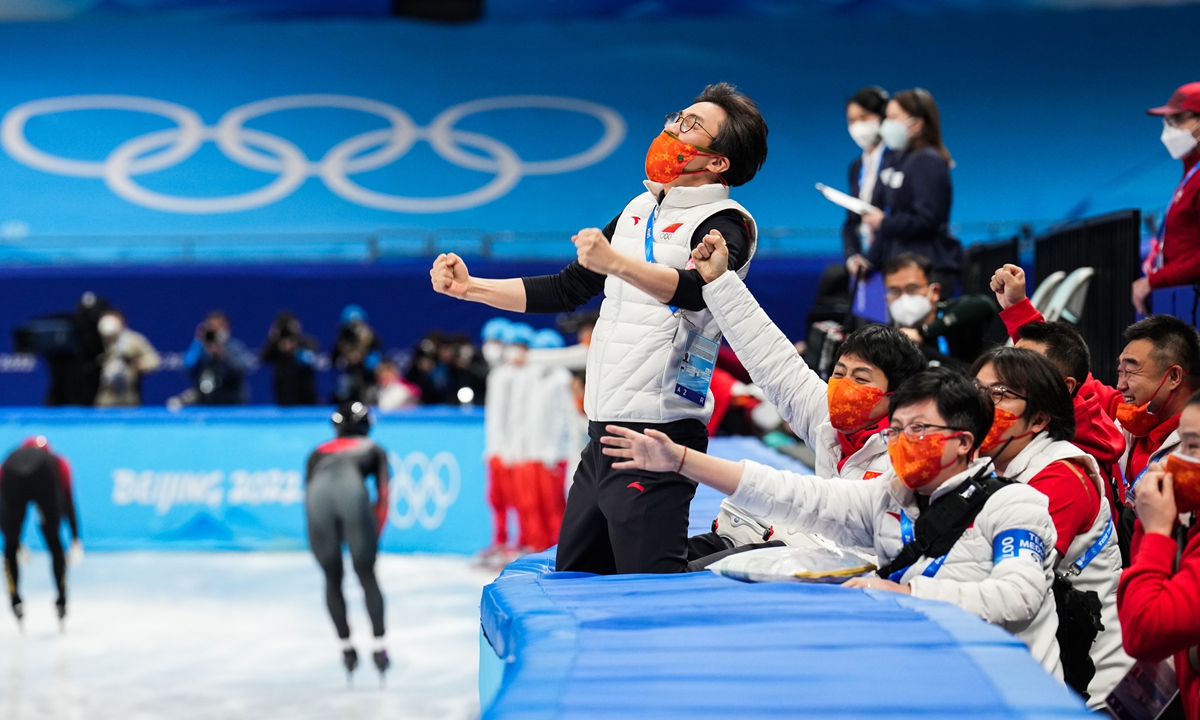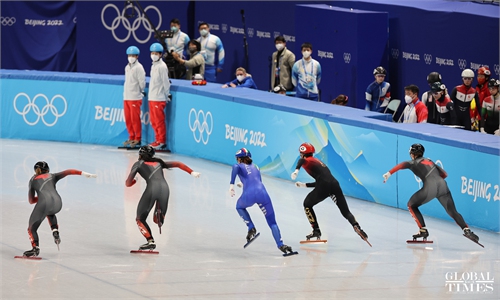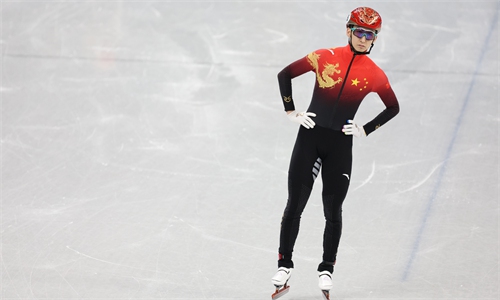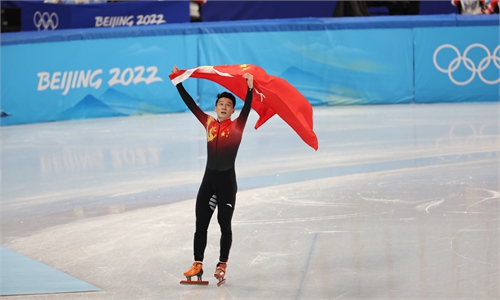SPORT / OLYMPICS
Wins, contradictions in short-track speed skating between China, S.Korea
A love-hate relationship

Kim Sun-tae Photo:VCG
As two of the dominant forces in short-track speed skating, China and South Korea have enjoyed a love-hate relationship due to their frequent matchups and clashes on the track.Short-track speed skating has been the main source of medals for the two East Asian neighbors at the Winter Olympics. Before Beijing 2022, 10 of China's 13 gold medals at the Winter Games came from the sport, while 24 of South Korea's 31 were from it.
After being a demonstration sport at the 1988 Winter Olympics, short-track speed skating has been a contest at the Games four years later at the 1992 Winter Games. South Korean skaters were best performers in all the three Games in 1992, 1994 and 1998, winning a total of nine gold medals among a total of 16.
Chinese skaters had to wait until 2002 to win their first two golds in short track, and became the best performers on the rink with two golds, two silvers, and gradually became a powerhouse in the sport.
In the following four Winter Olympics South Korea dominated two, while China and Russia topped one each in the other two.
And there have been South Korean contributions to China's rise and success in short track. South Korean skaters including Kim Sun-tae and Viktor Ahn Hyun-soo, who changed his nationality to Russian after years of service in Team South Korea yet was elbowed out by his own teammates, have been the chief and technical coaches for the Chinese national team.
Kim joined Team China's backroom staff in 2019, and became the head coach of the team in October 2021, to prepare the team in the run-up to the Beijing Winter Olympics.
He might not have been coaching the team for long, but started to influence the nation's skaters as early as 2002. The former speed skater was hired as coach of the Changchun speed skating team in 2002-2006 and 2010-2014. In his two spells with the team, he helped nurture talent like Vancouver 2010 gold medalist Zhou Yang and Han Tianyu, who claimed silver in Sochi in 2014.
"On a technical level, China and South Korea are very close in terms of short-track speed skating in recent years," Ren Hai, an Olympic sports expert, told the Global Times, which also indicates this should be a good phenomenon between the two as they can compete with strong enough rivals.
Having coached both national teams, Kim also holds a friendly attitude toward the sport as he once said in an interview after China's win, "I just hope both of them [China and South Korea] can show their best in each competition."
In the past few days' competition in Beijing 2022, Kim has shown his effort in pushing the Chinese team to the next level and was caught several times with the team's technical adviser Viktor Ahn Hyun-soo celebrating the wins of Team China courtside, while cheering and hugging each member of the team.
Kim's assistant Ahn is one of the most successful skaters in history. He won three gold and a bronze medals at the 2006 Winter Olympics in Turin, Italy, but became a Russian citizen in 2011, and claimed three golds and a bronze again at Sochi 2014.
In a livestreaming broadcast on Sunday, Wang Meng, China's most decorated speed skater with four Olympics gold medals, revealed her decision on Chinese social media platform Sina Weibo toward Ahn where she said, "There was a time there was no platform for him to express his talent after retirement, but China gave him the chance."
However, as sport fans noted that South Korea is famous for a history of disturbing opponents aggressively in competitions, the traditional short-track speed skating battle between China and South Korea continues at the Beijing 2022 Winter Olympics.
Fierce competition
South Korean skaters Hwang Dae-heon and Lee June-seo were disqualified for making an illegal late pass and lane change, respectively, in the semifinals of men's 1,000m on Monday night, while Chinese skaters Ren Ziwei and Li Wenlong swept gold and silver medals of the event.
Then the South Korean team withdrew from the Group B final and refused to talk to reporters as they left the field.
The battle did not just start at the 2022 Winter Olympics. Their short-track speed skating teams have had fierce competitions for more than 20 years, and have sometimes extended out of the arena.
The rivalry between the two began at the 1998 Nagano Winter Olympics, developed in the 2002 Salt Lake City Winter Olympics, and peaked in the Turin Winter Olympics four years later, as ifeng.com reported.
After Hwang and Lee were disqualified for making an illegal late pass and lane change in the men's 1,000 meters competition, which was won by Chinese skater Ren Ziwei, the South Korean team protested to the International Skating Union (ISU), the sport's governing body. But it was rejected.
Former skating star Wang Meng said in the commentary in a livestreaming platform that there was a lot of controversy in 2018 due to a lack of transparency in judges' decisions while South Korean skaters were the biggest winners in their home Winter Games. The ISU revised the rules. After each race, judges will review the video of the game and make a penalty based on every collision of the athletes. Skaters might be disqualified due to their fouls.
Under the new rules, the Koreans committed fouls frequently as they haven't changed their old habits during competitions, leading to penalties and result cancelations. If they still refuse to make a change, it might not take long for the Chinese speed skaters to overtake their neighbors in the Winter Olympics' overall medal standings, observers pointed out.



